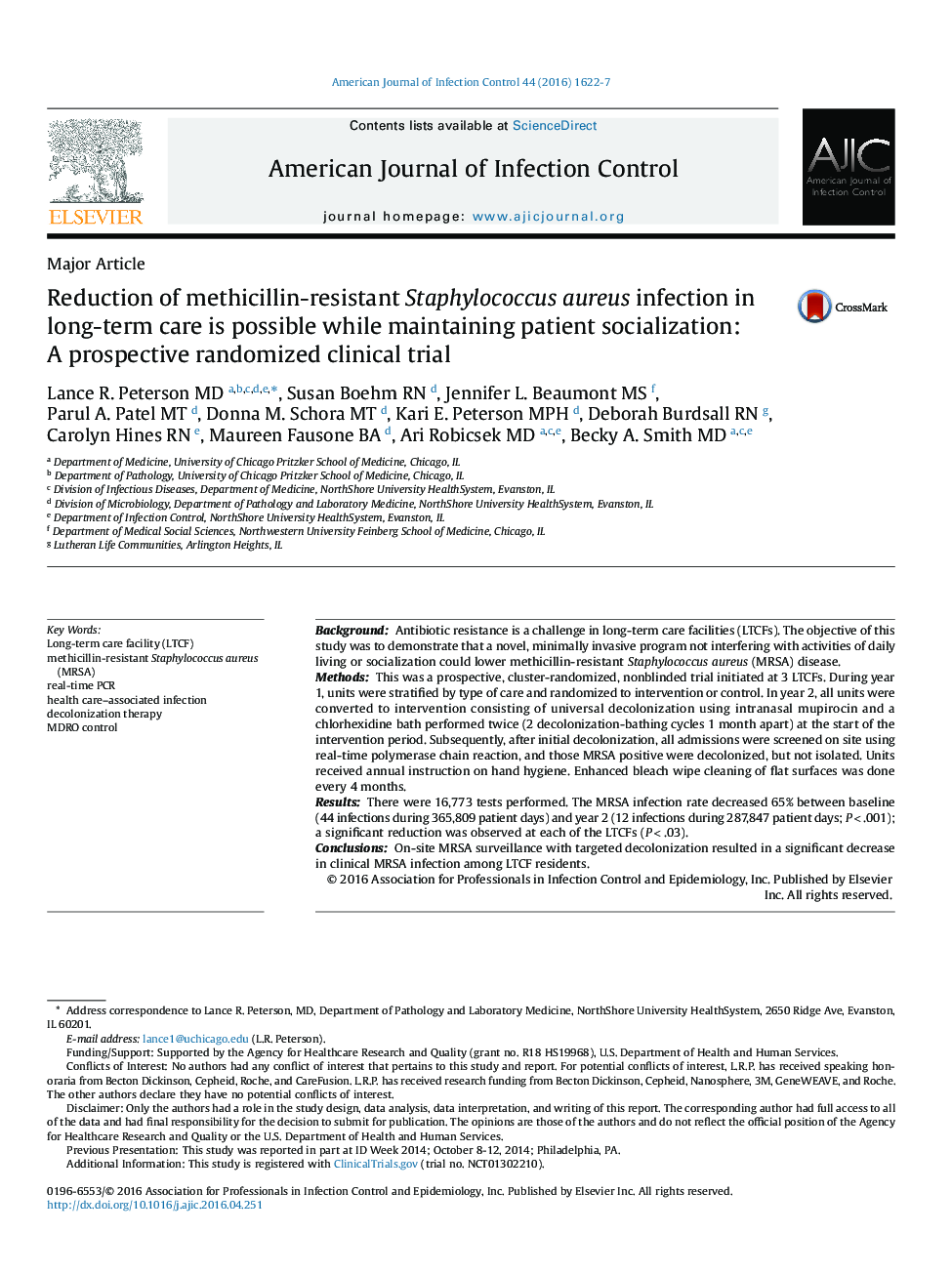| کد مقاله | کد نشریه | سال انتشار | مقاله انگلیسی | نسخه تمام متن |
|---|---|---|---|---|
| 5566305 | 1563450 | 2016 | 6 صفحه PDF | دانلود رایگان |
- Methicillin-resistant Staphylococcus aureus surveillance with targeted decolonization resulted in a significant 65% decrease in clinical infection.
- A 2-year project successfully demonstrated that long-term and acute care can work together to lower infections.
- Decolonization of those with asymptomatic methicillin-resistant Staphylococcus aureus carriage led to reduced nasal carriage prevalence.
- Mupirocin resistance was reduced during the trial that included determination of decolonization success.
BackgroundAntibiotic resistance is a challenge in long-term care facilities (LTCFs). The objective of this study was to demonstrate that a novel, minimally invasive program not interfering with activities of daily living or socialization could lower methicillin-resistant Staphylococcus aureus (MRSA) disease.MethodsThis was a prospective, cluster-randomized, nonblinded trial initiated at 3 LTCFs. During year 1, units were stratified by type of care and randomized to intervention or control. In year 2, all units were converted to intervention consisting of universal decolonization using intranasal mupirocin and a chlorhexidine bath performed twice (2 decolonization-bathing cycles 1 month apart) at the start of the intervention period. Subsequently, after initial decolonization, all admissions were screened on site using real-time polymerase chain reaction, and those MRSA positive were decolonized, but not isolated. Units received annual instruction on hand hygiene. Enhanced bleach wipe cleaning of flat surfaces was done every 4 months.ResultsThere were 16,773 tests performed. The MRSA infection rate decreased 65% between baseline (44 infections during 365,809 patient days) and year 2 (12 infections during 287,847 patient days; Pâ<.001); a significant reduction was observed at each of the LTCFs (Pâ<.03).ConclusionsOn-site MRSA surveillance with targeted decolonization resulted in a significant decrease in clinical MRSA infection among LTCF residents.
Journal: American Journal of Infection Control - Volume 44, Issue 12, 1 December 2016, Pages 1622-1627
